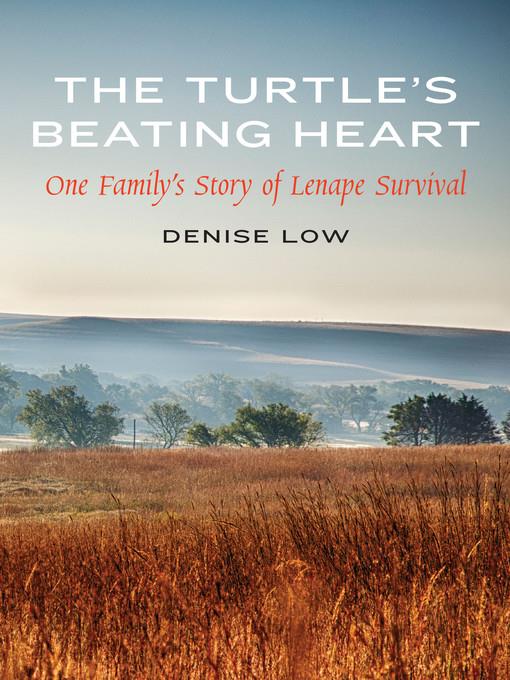
The Turtle's Beating Heart
One Family's Story of Lenape Survival
کتاب های مرتبط
- اطلاعات
- نقد و بررسی
- دیدگاه کاربران
نقد و بررسی

October 15, 2016
Spurred by the recognition that she knew little about her grandfather Frank Brunner, despite living in close proximity to him through much of her childhood, Low (former Kansas poet laureate; Worlds of a Prairie Alchemist) endeavored to discover why he was intentionally aloof toward even close relatives. What emerged from her research is this poignant memoir that illuminates not only the experiences that shaped Brunner but also the trauma wrought by the continuation of the Delaware (Lenape) diaspora, which began in the 18th century. Although Brunner tried to hide his native heritage as a young man, he and his family were subjected to constant harassment and discrimination while living in Burns, KS, including threats of violence from the Ku Klux Klan. In response, Brunner relocated with his family to Kansas City. As an adult, he opted to protect his loved ones through isolation and no mention of his Delaware ancestry. While well intentioned, this tactic had long-term implications for his descendants. Through her dogged research, Low rediscovers her native heritage and makes connections to others who share her background. VERDICT Readers interested in the 20th-century American Indian experience will find this to be a valuable account.--John R. Burch, Campbellsville Univ. Lib., KY
Copyright 2016 Library Journal, LLC Used with permission.

October 15, 2016
A poet and professor comes to terms with her Native American heritage.Though many tribes have been better able to sustain a collective identity--whether on a reservation or through perpetuation of their legacy--Low (Jackalope, 2015, etc.) never knew much about her Delaware (Lenape) heritage when she was growing up in Kansas. When the Delaware "sold" Manhattan to the Dutch in 1626, many of them dispersed in various directions, sometimes in different clans ("Wolf, Turkey, and Turtle"), but they retained no sustained tribal identity. Low's mother rarely acknowledged that bloodline and showed disfavor toward the daughter who so resembled her grandfather. "Discrimination against Native people has been so fierce that many people, like my family, suppressed their identity with non-Europeans as completely as possible," she writes. "Some black Cherokees chose to identify with African Americans because it was easier." As the former poet laureate of Kansas and a dean at the Haskell Indian Nations University, she found herself traveling around the state, hearing stories from those with similar backgrounds. She became even more curious about the legacy that seemed lost, the history her family never spoke about, the one it had tried to hide, to marry above, to leave dead in the past. "This process has healed me," she writes, allowing her to deepen the sort of relationship with her mother that they'd never had when the latter was living, to discover just how much in common she had with her grandfather, and to realize how those earlier had suffered at the hands of the Ku Klux Klan and discrimination in general. "The story of my grandfather and my mother has become my own, as my past grows longer than my future," she writes. An engagingly written mix of research, reportage, and memoir, infused with the passion of discovery.
COPYRIGHT(2016) Kirkus Reviews, ALL RIGHTS RESERVED.

December 15, 2016
Low delves into the Delaware Indian heritage of her maternal grandfather, who lived in Kansas from 1889 to 1963. Because of discrimination against native people that followed the Delaware branch of the Lenape from New Jersey to Kansas and later to a reservation in Oklahomawhat Low calls the longest Trail of Tears, extending from 1600 to 1867her family suppressed their ethnic background, only acknowledging their German and Irish ties. The vigilante threat was very real in her grandfather's day, with African Americans, Catholics, Mexican Americans, and Native Americans all becoming targets of the Kansas KKK. Another threat to indigenous families was forced enrollment in Indian boarding schools, which Low's grandfather avoided by moving just outside of federal jurisdiction. The family lived, like many others of mixed heritage, in limbo for years until the author realized that each individual has a responsibility to a larger history that should be passed on to not just one's own children but all those that follow. Consequently, she was inspired to research and write this remarkable story of her long-buried native ancestry.(Reprinted with permission of Booklist, copyright 2016, American Library Association.)

























دیدگاه کاربران